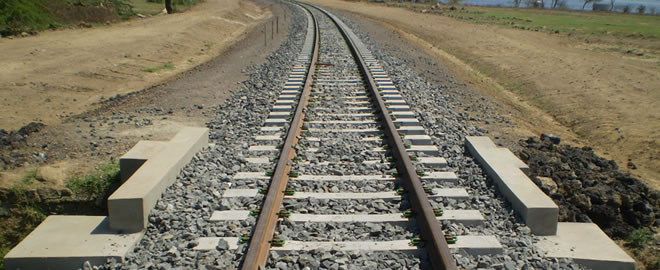
Tuesday, September 22, 2015

After posting strong GDP growth in recent years, Djibouti is set to receive a further boost from the opening of a $4bn rail link connecting the country's ports with the Ethiopian capital Addis Ababa.
Officials expect the new rail line to boost bilateral trade and drive up demand for port services over the longer term, as more than 90% of Ethiopia's imports arrive via Djibouti, according to regional media.
Great expectations
The two capitals were originally linked by a train service in 1917; however, the line fell into disrepair, with trains routinely derailing and journeys taking up to five days.
The new 750-km rail link is set to cut travel time between the ports and Addis Ababa significantly. While transportation via heavy goods vehicles currently takes around two days by road, the rail line is expected to shorten the journey to 10 hours. Capacity will also be higher, at around 3500 tonnes - seven times the maximum capacity of the previous line.
According to Getachew Betru, chief executive of state-owned Ethiopian Railways, a "considerable portion" of the cross-border investment project would be completed by October, with operations expected to begin early next year. Speaking to media in January, Betru described the project as a "game changer", adding, "It will be one of the most vibrant economic corridors in the world."
Djiboutian officials hope the railway will eventually be extended to South Sudan, the Central African Republic and Cameroon, connecting the Red Sea and the Atlantic Ocean.
Pivot to Africa
In line with China's expanding role in infrastructure development across the continent, the China Railway Group and the China Civil Engineering Construction Corporation are leading construction of the railway project, while the Export-Import Bank of China, China Development Bank, and the Industrial and Commercial Bank of China are providing financing.
Chinese companies will be developing related infrastructure and port facilities in Djibouti, such as a new shipyard, highway and expansion of the Doraleh port. Plans also include creating extensive new warehouse and office space alongside the Djibouti Free Trade Zone. State-owned China Merchants Holding is set to lead construction on the $7bn, 10-year project, having signed an agreement with the Djibouti Ports and Free Zones Authority in March.
Foreign appetite
The new railway will help Djibouti capitalise on growth in neighbouring markets, such as Ethiopia. With a population of around 94m, Ethiopia's economy expanded by more than 10% last year, according to estimates from the IMF, driving demand for imports, the vast majority of which are channelled through Djibouti's ports. Forecasts for robust growth in Ethiopia in the medium term bode well for Djibouti, with increases in Ethiopia's export volumes also set to boost outbound traffic and revenue from Customs duties.
Longer term, Djiboutian officials hope to build on the country's geographical position, abutting markets in the Middle East, North Africa and East Africa, along with its transport links by developing special economic zones, where foreign companies will be able to assemble goods for re-export.
After talks earlier this year between Turkish officials and the Djiboutian government, Turkey has announced plans to build an economic zone in the country for assembly and processing. According to Elias Moussa Daweleh, Djiboutian minister of finance and economy, Turkey plans to use a manufacturing base in Djibouti to export goods to East Africa and beyond. Developing re-assembly and manufacturing facilities is seen as key to further boosting GDP growth, creating jobs and diversifying the economy away from a reliance on transport services.
Broadening investment
The country's large-scale infrastructure investments - a sizeable percentage of which are being led by the government - are weighing on Djibouti's public finances. While official data is limited, the IMF has raised concerns about the size of the country's fiscal deficit, which it estimated at 12% of GDP in 2014, expected to rise to 13.8% in 2015. The deficit is being driven by capital spending, rather than current expenditure, which should lift the economy's growth potential in the long term. However, public debt is rising rapidly, having reached over 55% of GDP last year, according to the IMF.
Although continuing credit from China should alleviate concerns about debt servicing in the near-to-medium term, more sluggish growth in China will have implications over the extent to which Djibouti, like many other economies in the region, has become reliant on the Asian giant to spur domestic activity.
© Oxford Business Group 2015